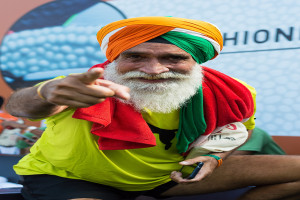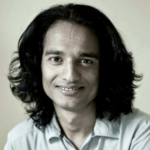
 By Kaushal Kishore*
By Kaushal Kishore*
Punjab is going to vote on Sunday, February 20, 2022, which will decide the fate of 1304 candidates on 117 assembly seats. Its result is expected on March 10, 2022, along with election results of Uttarakhand, Uttar Pradesh, Manipur and Goa. This time the electoral battle is quadrangular between the Bharatiya Janata Party (BJP), Shiromani Akali Dal (SAD), the ruling Congress Party and the Aam Aadmi Party (AAP).
The Congress Party, led by Chief Minister Charanjit Singh Channi is trying hard to retain power in the state. The Congress high command has been projecting him as its Dalit face. The rejection of the candidature of state Congress president Navjot Singh Sidhu is yet another outcome of it. As such Sidhu’s cold welcome to the Congress’ high command’s decision is already in the public domain. His wife Dr Navjot Kaur and daughter Rabiya Sidhu have opened a front against Channi in the media. The Punjab Lok Congress (PLC), was founded by Amarinder Singh on 2 November 2021, following a split in the Congress Party in Punjab. It actually is an outcome of the differences between Sidhu, the then state Congress chief, and the Captain, who was then the Chief Minister of the state.
In the runup to the elections, the Punjab Congress has suffered many setbacks. Former Union minister and senior Congress leader Ashwini Kumar left the party, and so did Karamjit Singh Rintu, the Mayor of Amritsar. Rintu joined the AAP. Besides, Chief Minister Channi’s nephew Bhupinder Singh Honey has been sent to judicial custody for two weeks in the illegal mining case. Apart from the usual anti-incumbency wave and the cases of corruption, a rising rift within the party fold adds to the troubles of the Punjab Congress.
The leader of Shiromani Akali Dal, Sukhbir Singh Badal is also a contender for the top public office of Punjab. In the wake of the protest against three farm laws, the SAD had severed its ties with a long time ally, the BJP. Today SAD is contesting the election with Mayawati’s Bahujan Samaj Party (BSP). The SAD and BSP alliance has fielded 97 and 20 candidates respectively. Dalits constitute 32 per cent of the total population of the state, whether they are impressed by this alliance is anyone’s guess at the moment since the Congress’ CM face too, is a Dalit. Dalits are the largest vote bank in Punjab, and its division is possible due to the equation between Channi and Mayavati.
The BJP has been trying hard to gain ground in Punjab. The party recently won the Mayor’s election in Chandigarh and is now an ally of the Captain’s newly formed PLC and SAD (U) led by Sukhdev Singh Dhindsa. This time BJP candidates have been contesting on 65 seats. In addition to it, the double engine agenda is promoted by 37 PLC candidates along with 15 SAD (U) candidates. Captain Amarinder Singh is the top leader of this alliance, but the alliance has refrained from naming its CM candidate.
Coming to the AAP, it may be mentioned that at the beginning of this year, the party had emerged as the largest party in the election of the Chandigarh Municipal Corporation. Whether it will be able to continue this winning spree in the assembly elections is being seen with interest. In the last assembly election in the state, the AAP had won 20 seats to occupy the opposition bench. It is depending on the anti-corruption plank. AAP candidates are in the contest on every seat, and they have declared Bhagwant Mann as the chief ministerial candidate.
Two days before the voting, the Chief Minister of Punjab wrote a letter to the Union home minister to investigate the alleged links of the AAP supremo and Delhi Chief Minister Arvind Kejriwal with terrorist outfits like Sikhs For Justice. But Channi himself stepped into a controversy with his adverse remarks on the migrant workers from UP and Bihar who share more than 1.3 million votes in Punjab. The AAP in particular and also leaders of other parties are trying to appease this class of voters. Moreover, the AAP hopes to reap dividends of its support to the farmers’ prolonged protest against the three farm laws, that were finally withdrawn by the BJP-led union government just before the assembly elections. It has been a crucial election for the party, which rules Delhi as of now, in its attempt to spread its reach across the country.
*Kaushal Kishore is the author of The Holy Ganga (Rupa, 2008) and Managing Editor of Panchayat Sandesh, a monthly organ of All India Panchayat Parishad. The views expressed as personal.





